MANDATORY EXTENSION OF COBRA, CLAIMS PROCEDURE AND OTHER TIME FRAMES

MANDATORY EXTENSION OF COBRA, CLAIMS PROCEDURE AND OTHER TIME FRAMES
By Renee Lieux on
POSTED IN EMPLOYEE BENEFITS
On April 30, 2020, the Internal Revenue Service and the Department of Labor extended certain time frames for special enrollment in a health plan, COBRA coverage, claims procedures, and external reviews for all welfare and pension plans. Under the Rule, all group health plans, disability and other employee welfare benefit plans, and employee pension benefit plans subject to ERISA or the Internal Revenue Code must disregard the time period from March 1, 2020 until sixty (60) days after the announced end of the National Emergency (or such other date that the IRS or DOL may announce), in determining the following deadlines:
- The 30-day period (or 60-day period, if applicable) to request special enrollment;
- The 60-day election period for COBRA continuation coverage;
- The date for making COBRA premium payments;
- The date for individuals to notify the plan of a qualifying event or determination of disability;
- The date within which individuals may file a benefit claim under the plan’s claims procedure;
- The date within which individuals may file an appeal of an adverse benefit determination under the plan’s claims procedure; and
- The date within which a group health plan must provide a COBRA election notice.
For example, if a participant had a special enrollment event on February 29, 2020 and the end of the National Emergency is June 1, 2020, then the participant has thirty days after July 31, 2020 to request special enrollment.
The DOL also posted a separate notice relaxing the time frames for plans to furnish notices, disclosures, and documents, including black out notices, that must be furnished between March 1, 2020 and 60 days after the announced end of the National Emergency, if the plan acts in good faith and furnishes the document as soon as administratively practicable under the circumstances.
The DOL is also relaxing retirement plan loan and distribution procedural requirements during the National Emergency. If an employee retirement plan fails to follow procedural requirements for plan loans or distributions imposed by the plan, the DOL will not treat it as a failure if the failure to follow procedures is solely attributable to the COVID-19 outbreak; there was a good-faith diligent effort under the circumstances to comply with the requirements; and there is a reasonable attempt to correct any procedural deficiencies as soon as administratively practicable.
The DOL emphasized that plans must “act reasonably, prudently, and in the interest” of the participants and should make “reasonable accommodations” to prevent the loss of benefits.
Lastly, on May 1, 2020, revised COBRA notices to be used by health care plans and employers were published by the DOL. The revised notices provide additional information for employees who are eligible for Medicare.




